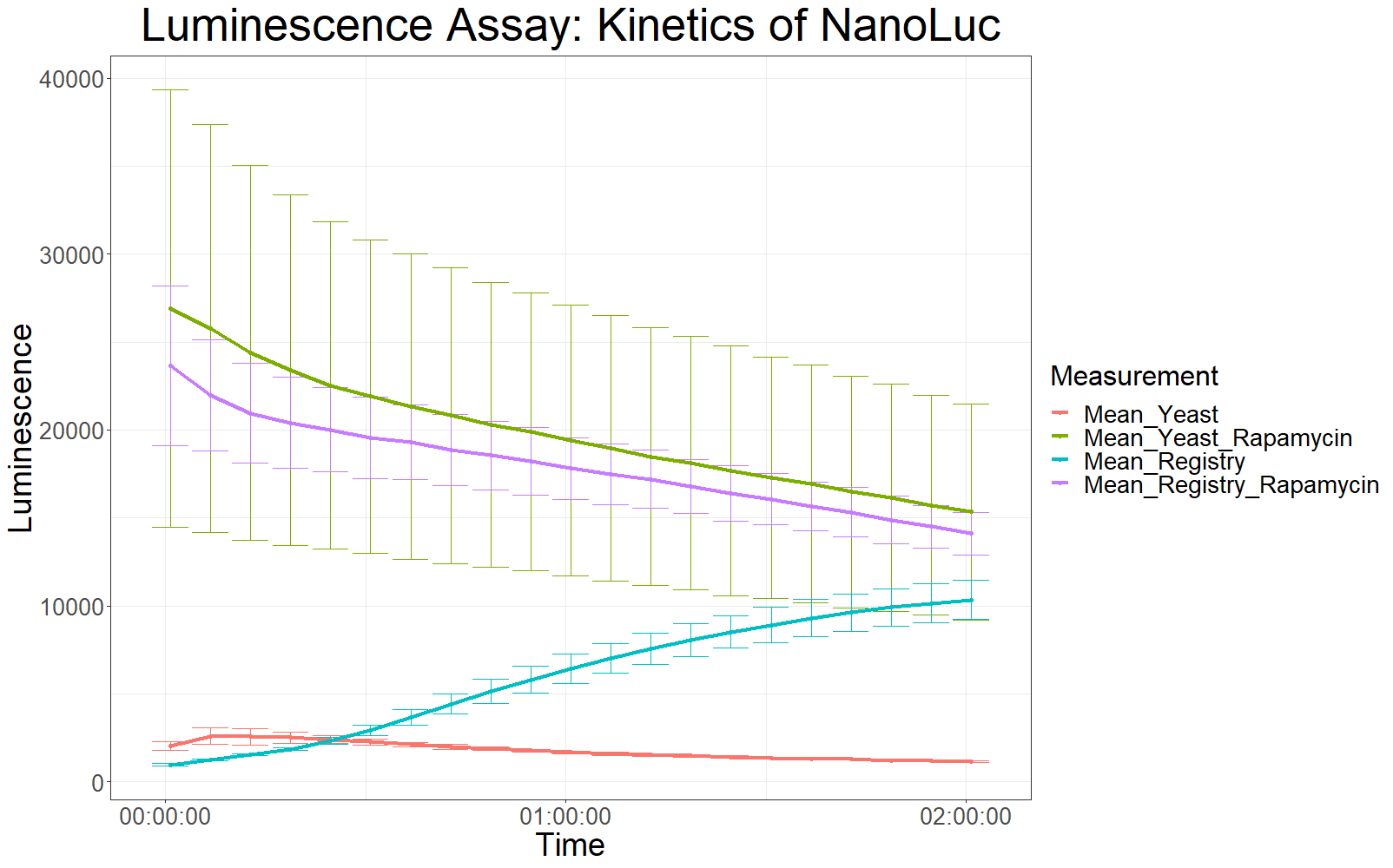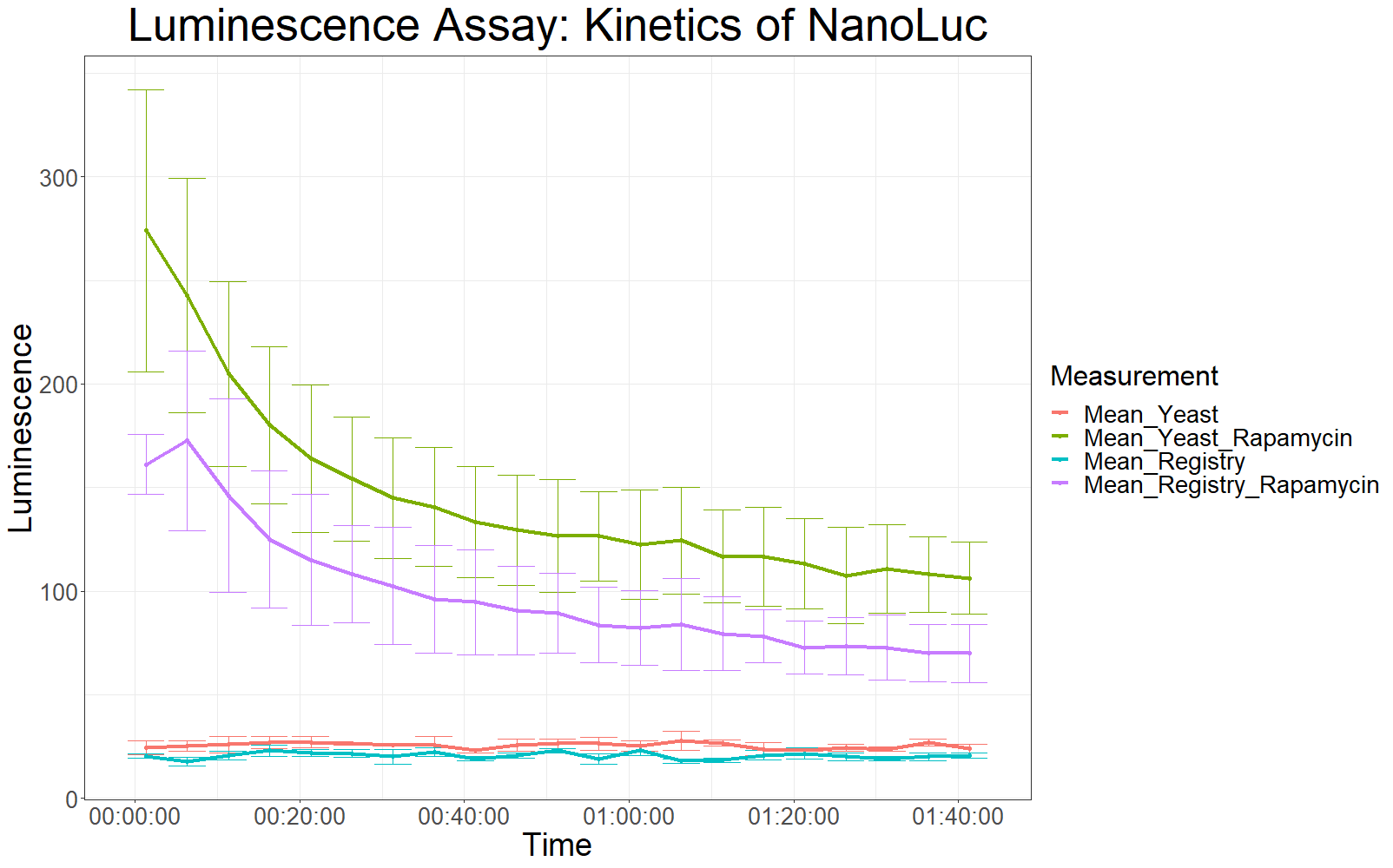Difference between revisions of "Part:BBa K3610054"
(→Characterization) |
|||
| (One intermediate revision by the same user not shown) | |||
| Line 6: | Line 6: | ||
==Characterization== | ==Characterization== | ||
| − | We used this part to compare the performance of the codon optimized version of LargeBit with the original sequence in <i>S. For a more detailed description of the experiment see [[Part:BBa K3610014]] | + | We used this part to compare the performance of the codon optimized version of LargeBit with the original sequence in <i>S. Cerevisiae</i>. For a more detailed description of the experiment see; [[Part:BBa K3610014]]. |
Plasmids containing the constructs FRB:SmallBit and FKBP12:LargeBit, were used to transfect <i>S. cerevisiae</i> cells. This was done twice. In one case, the LargeBit sequence was codon optimized for expression in yeast ([[Part:BBa_K3610055]]), while one yeast culture was transfected with plasmids containing this part ([[Part:BBa_K3610054]]). | Plasmids containing the constructs FRB:SmallBit and FKBP12:LargeBit, were used to transfect <i>S. cerevisiae</i> cells. This was done twice. In one case, the LargeBit sequence was codon optimized for expression in yeast ([[Part:BBa_K3610055]]), while one yeast culture was transfected with plasmids containing this part ([[Part:BBa_K3610054]]). | ||
| Line 17: | Line 17: | ||
| − | The results clearly demonstrate how rapamycin increases dimerization rates of the two NanoLuc parts. Suggesting that rapamycin induced protein-protein interaction with FRB and FKBP12 is possible for the NanoBit system | + | The results clearly demonstrate how rapamycin increases dimerization rates of the two NanoLuc parts. Suggesting that rapamycin induced protein-protein interaction with FRB and FKBP12 is possible for the NanoBit system. |
Latest revision as of 01:24, 28 October 2020
FKBP / LargeBit NanoLuc
This part encodes the LargeBit protein from the split-NanoLuc system fused to the FK506 binding protein. This part can be used together with the Part:BBa_K3610056 to test the dimerization of the split-NanoLuc proteins.
Characterization
We used this part to compare the performance of the codon optimized version of LargeBit with the original sequence in S. Cerevisiae. For a more detailed description of the experiment see; Part:BBa K3610014.
Plasmids containing the constructs FRB:SmallBit and FKBP12:LargeBit, were used to transfect S. cerevisiae cells. This was done twice. In one case, the LargeBit sequence was codon optimized for expression in yeast (Part:BBa_K3610055), while one yeast culture was transfected with plasmids containing this part (Part:BBa_K3610054). Samples from these cell cultures were examined with a luminometer of the type Synergy H1. Two types of treatments were performed for each sample, with and without addition of rapamycin. Each type of measurement was performed multiple times. For each experiment, the OD600 values of the samples were adjusted to the same value.
We conducted 2 luminescence assays.
The results clearly demonstrate how rapamycin increases dimerization rates of the two NanoLuc parts. Suggesting that rapamycin induced protein-protein interaction with FRB and FKBP12 is possible for the NanoBit system.
Sequence and Features
- 10COMPATIBLE WITH RFC[10]
- 12COMPATIBLE WITH RFC[12]
- 21COMPATIBLE WITH RFC[21]
- 23COMPATIBLE WITH RFC[23]
- 25COMPATIBLE WITH RFC[25]
- 1000COMPATIBLE WITH RFC[1000]


